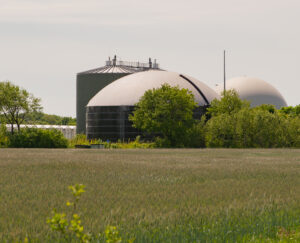Experts call on EU policy makers to accelerate biomethane grid injection

The recommendations for the gas grid infrastructure can significantly contribute to Europe’s energy security and defossilisation objectives at a competitive cost, according to the European Biogas Association (EBA).
Grid injection will be key to realise the large future potential of biomethane production, fostering the growth of a homegrown renewable gas within Europe.
The adoption of the recommendations followed a full day of discussions that showed a critical need for cooperation between policymakers, regulators, and gas grid operators to accelerate biomethane injection.
In this regard, the Forum called for urgent action from national governments and regulators to implement the right to inject biomethane into the grids, as mandated in the 2024 Gas Package.
Additionally, it supports the development of guidelines with regard to the “reasonable time limits” for grid connection.
The Forum conclusions also emphasise adapting the existing grid planning practices.
A 'zoning approach' is proposed by experts, combining the grid availability and long-term biomethane production potential at local level.
On this point, the Forum calls on the European Commission to take decisive leadership in advancing Renewable Acceleration Areas (RAAs) for biomethane in 2 ways: by developing guidance for the implementation of the zoning approach and the attribution of overriding public interest status to biomethane projects; and facilitating peer exchanges among Member States.
Such an approach would facilitate cost-effective integration of biomethane into grids and ensure that targeted grid reinforcements are done, added EBA.
These investments, such as reversed flow stations, meshing and dedicated pipelines will significantly increase the acceleration of European biomethane production, supporting both EU and national climate goals.
Grid connection costs were also a central topic of discussion.
The Forum encouraged national authorities, in partnership with grid operators, to include cost-sharing mechanisms in their regulations on grid connection and reinforcements.
This will ensure a balanced distribution of the financial cost related to the defossilisation of Europe’s gas grids, said EBA.
The deployment of biomethane to replace fossil fuels does not require the large investments. The existing gas infrastructure is biomethane-ready. This is key to ramping up decarbonisation and providing affordable renewable energy for consumers, continued the association.
As it is easily stored and produced at a constant pace, biomethane injection also helps balance energy supply from intermittent energy sources of renewable origin, as part of a forward-looking energy mix, it stated.
"These discussions are taking place at a timely moment, following the recent publication of the Clean Industrial Deal. The forum also set forth recommendations to address the conclusions of the Grid Ready Forum at the European Commission’s Energy Infrastructure Forum in June, which will focus on the challenges of accelerating Europe’s energy infrastructure to meet the EU’s decarbonisation targets," concluded EBA.


























